H.R. 2669: Community First Pretrial Reform Act
The Community First Pretrial Reform Act is a proposed piece of legislation aimed at reforming the pretrial process in the United States, focusing on reducing the number of individuals incarcerated in local jails and the length of their stays. Here’s a breakdown of what the bill entails:
Grants for Local Initiatives
The bill authorizes the Attorney General to provide grants to eligible partnerships, which can include local governments, territories, Indian tribes, and nonprofit organizations. The purpose of these grants is twofold:
- Analysis and Planning: Grants can be used to gather and examine local criminal justice and incarceration data, focusing on equity disparities. Recipients must develop a publicly accessible plan to reduce local jail incarceration.
- Implementation: Recipients can also use grants to execute their plans and are encouraged to engage in various activities aimed at reducing jail populations, such as:
- Reducing reliance on cash bail.
- Avoiding revocations of conditional releases.
- Expanding pretrial services, especially in collaboration with community groups.
- Streamlining case processing to hasten judicial proceedings.
- Ensuring legal counsel is provided early in the process.
- Improving training for defenders.
- Creating diversion programs that do not involve incarceration.
Eligibility and Application Process
An eligible partnership must consist of at least two entities from a specified list, including local governments, tribes, and nonprofits. To apply for a grant, entities must submit detailed information about their local pretrial services, plans for minimizing restrictions on individuals accused of crimes, and methods for evaluating their effectiveness.
Requirements for Grantees
Grantees must:
- Consult with various stakeholders throughout implementation, including law enforcement and community organizations.
- Analyze data to identify causes of jail overcrowding and disparities.
- Commit to specific reduction targets for jail populations over time.
- Engage external evaluations to monitor their progress.
- Utilize savings from reduced incarceration to fund ongoing community services.
Monitoring and Oversight
The Bureau of Justice Assistance will monitor the grants. If grantees fail to meet established targets, they may undergo audits and be required to adapt their strategies. Repeated failures could result in grant termination.
Financial Provisions
The bill outlines specific funding allocations:
- Planning Grants: Up to $100,000 per grantee for planning activities, lasting one year.
- Implementation Grants: Between $500,000 and $3,000,000 for projects over six years, with decreasing amounts in subsequent years.
Selection Criteria
The Attorney General will prioritize applications from jurisdictions with high incarceration rates and ambitious plans to reduce those rates. Special consideration will be given to proposals aimed at preventing the expansion of local jail capacities.
Definitions and Terminology
A range of terms are defined within the legislation, including:
- Conditional Release: Supervised release from jail, such as probation or parole.
- Diversion Programs: Initiatives that redirect individuals away from traditional criminal justice processing.
- Equity Disparities: Differences in criminal justice outcomes that correlate with demographic factors.
Funding Authorization
The bill authorizes funding for the program, including:
- $20 million annually for planning grants from 2026 to 2030.
- $100 million annually for implementation grants during the same time frame, with a portion set aside for evaluation activities.
Relevant Companies
None found.
This is an AI-generated summary of the bill text. There may be mistakes.
Sponsors
15 bill sponsors
-
TrackWesley Bell

Sponsor
-
TrackYassamin Ansari

Co-Sponsor
-
TrackSanford D. Bishop, Jr.
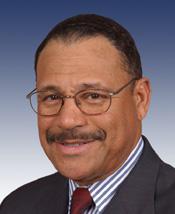
Co-Sponsor
-
TrackYvette D. Clarke

Co-Sponsor
-
TrackEmanuel Cleaver
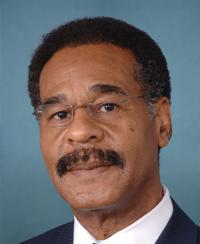
Co-Sponsor
-
TrackJasmine Crockett

Co-Sponsor
-
TrackShomari Figures

Co-Sponsor
-
TrackGlenn Ivey
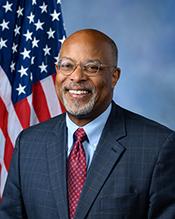
Co-Sponsor
-
TrackJonathan L. Jackson
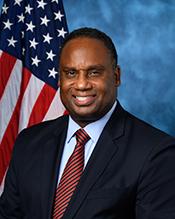
Co-Sponsor
-
TrackHenry C. "Hank" Johnson, Jr.

Co-Sponsor
-
TrackLaMonica McIver

Co-Sponsor
-
TrackEleanor Holmes Norton

Co-Sponsor
-
TrackShri Thanedar
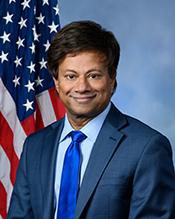
Co-Sponsor
-
TrackBennie G. Thompson
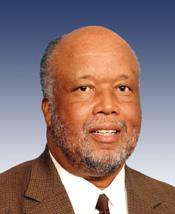
Co-Sponsor
-
TrackFrederica S. Wilson
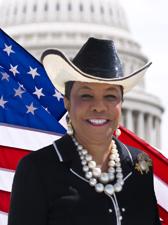
Co-Sponsor
Actions
3 actions
| Date | Action |
|---|---|
| Apr. 10, 2025 | Sponsor introductory remarks on measure. (CR H1568) |
| Apr. 07, 2025 | Introduced in House |
| Apr. 07, 2025 | Referred to the House Committee on the Judiciary. |
Corporate Lobbying
0 companies lobbying
None found.
* Note that there can be significant delays in lobbying disclosures, and our data may be incomplete.
Potentially Relevant Congressional Stock Trades
No relevant congressional stock trades found.